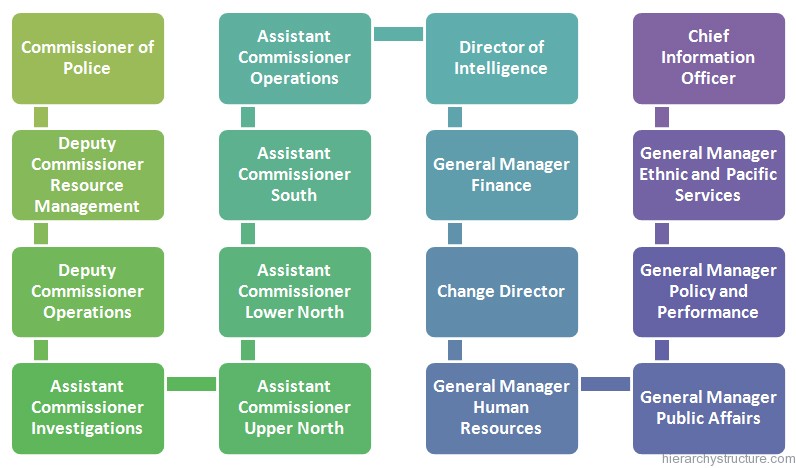New Zealand police is the lead agency responsible for enhancing safety of the communities and reducing crimes in the country. The whole police department operates through over 400 community based police stations all around the country. The mission of the New Zealand police is to work in collaboration with the citizens and community; in order to enhance public safety, reduce crime and to maintain law and order. The main functions of New Zealand police include keeping peace, community support and reassurance, law enforcement, national security, participation in policing activities, emergency management, and dealing with firearms licensing, dealing with commercial vehicles enforcement laws and enforcing criminal laws.
The New Zealand police organization is divided into twelve districts. Each and every district has a central police station. The central police station manages the suburban and subsidiary police stations. The chief executive of the New Zealand police is known as the Commissioner and is appointed by the Governor General. The New Zealand police hierarchy is as follows starting from the highest grade of officer:

- Commissioner of Police: The Commissioner is responsible for assets and budgeting and manages the operational matters.
- Deputy Commissioner Resource Management: The Deputy Commissioner Resource Management is appointed by the Governor General. S/he acts as a bridge between the frontline officers and the factors that affect their jobs.
- Deputy Commissioner Operations: A Deputy Commissioner Operations manages the national operational functions, investigative and intelligence functions and road policing etc. S/he also deals in national security and counter terrorism.
- Assistant Commissioner Investigations: The Assistant Commissioner Investigations lead the investigation, prosecution and prevention of serious crimes.
- Assistant Commissioner Upper North: The Assistant Commissioner Upper North oversees the policing in Northland, Waitemata, Counties-Manukau and Auckland city police districts.
- Assistant Commissioner Lower North: The Assistant Commissioner Lower North oversees the policing in Waikato, Eastern, Central, Bay of Plenty and Wellington police districts.
- Assistant Commissioner South: The Assistant Commissioner South oversees the policing in Canterbury, Tasman and Southern districts.
- Assistant Commissioner Operations: The main job roles of an Assistant Commissioner Operations are community policing, road policing and managing the operations group and youth communication centers.
- Director of Intelligence: The Director of Intelligence provides direction to operational policing through national coordination and focuses on high priority crimes and security problems.
- General Manager Finance: The main responsibility of General Manager Finance is to manage the financial functions and record keeping functions concerning capital expenditure and operating expenditure.
- Change Director: The function of a Change Director is to fully coordinate and implement the change programs that are in pipeline in the police department.
- General Manager Human Resources: The General Manager Human Resources is responsible for managing employment relations, health and safety, organizational development and performing recruitment services.
- General Manager Public Affairs: The General Manager of Public Affairs manages the media relations, recruitment marketing, online and print publishing and stakeholder relations.
- General Manager Policy and Performance: The General Manager Policy and Performance manages the Business Structure activities and the quality improvement functions of the police department.
- General Manager Ethnic and Pacific Services: This particular rank of the New Zealand police hierarchy is responsible for providing strategic and operational support to the district and national police headquarters.
- Chief Information Officer: The Chief Information Officer oversees various in-house and outsourced projects relating to computers and telecommunications for the police department.
